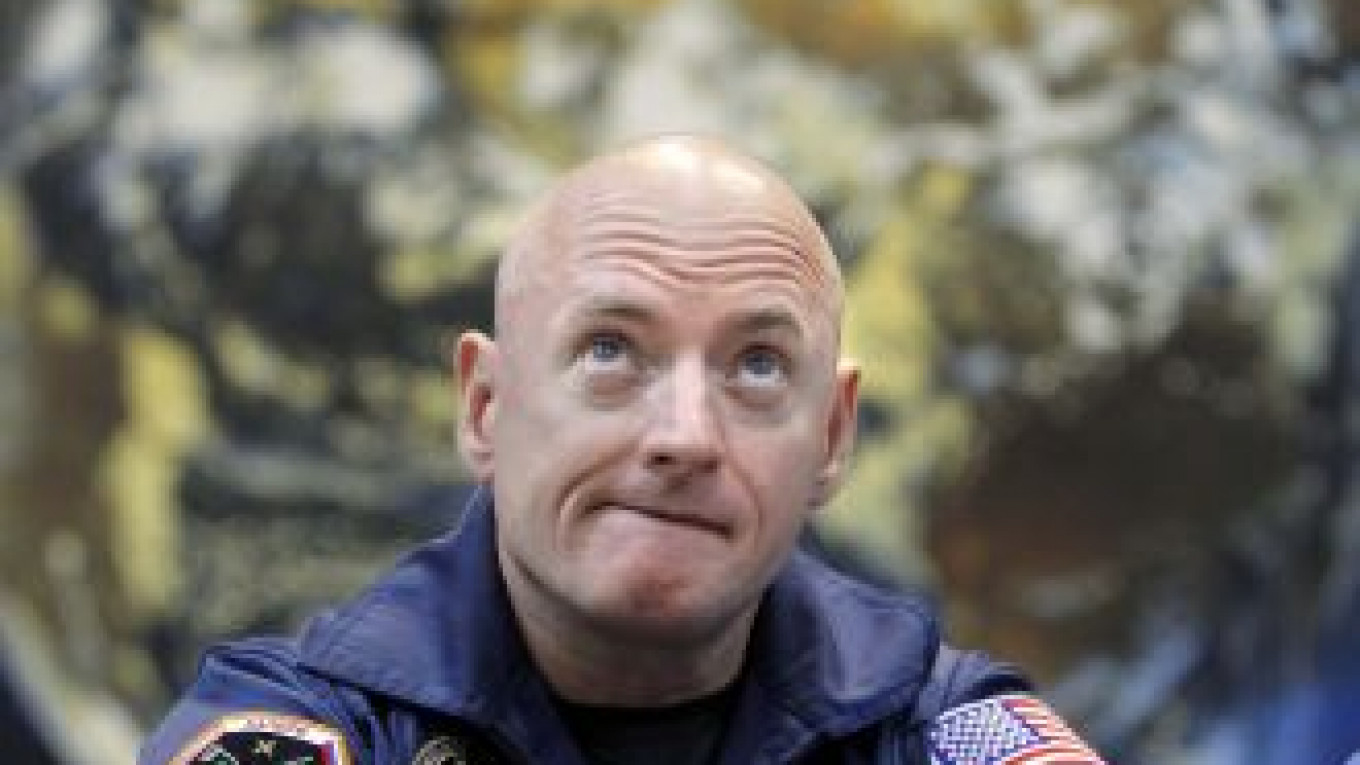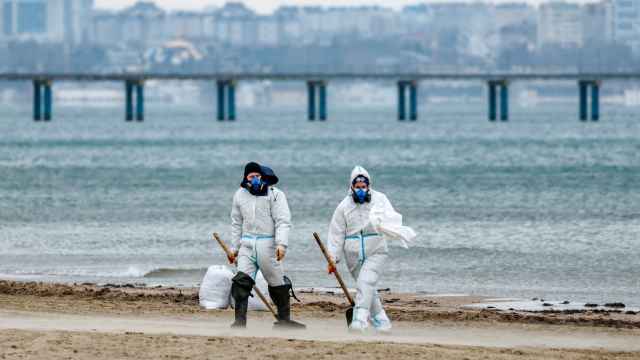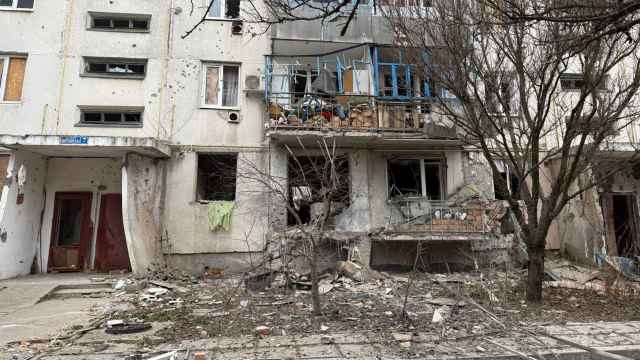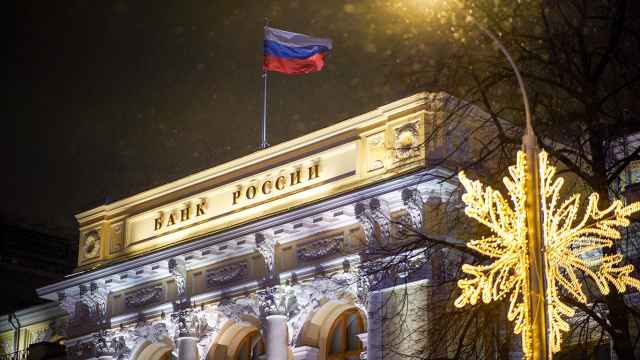BAIKONUR, Kazakhstan – When U.S. astronaut Scott Kelly blasts off to the international space station, he will have one unlikely consolation as he begins five months away from his family — his identical twin will drop by.
Kelly and Russia's Alexander Kaleri and Oleg Skripochka were to take off early Friday on a Soyuz rocket from the Baikonur cosmodrome leased by Russia in southern Kazakhstan.
Scott Kelly will be joined at the space station by his brother Mark, another NASA astronaut who will fly the Endeavor space shuttle.
"As kids, we never thought we'd be in this unique and privileged position to be able to do this," Scott Kelly told reporters from behind a plate of protective glass. The cosmonauts are kept in strict isolation in the days ahead of the launch to avoid exposure to infection.
During the pre-launch news conference, Mark Kelly looked at Scott from the other side of the glass as he sat next to journalists, engineers and NASA officials.
Mark Kelly said he had thought it unlikely that he and his brother would meet in space, even when they both were on space flight training programs.
This twist of fate became possible after Mark Kelly's shuttle flight was postponed in July. "It wasn't planned. I should have landed by now," he said.
Scott Kelly and two Russian cosmonauts will be flying in the first all-digital Soyuz. A single new digital device on the spacecraft will replace five incompatible processors previously used for monitoring different aircraft systems.
The overhauled Soyuz will allow a doubling of the launch rate of Soyuz spaceships, which will help maintain a crew of six aboard the space station — crucial in the absence of the NASA shuttle fleet.
The upgrade is expected to save time in the pre-launch checkout and in overseeing the craft in space.
Kelly's teammate, Alexander Kaleri, said it was high time to retire "last century's technology."
The Soyuz spacecraft was designed in the mid-1960s and is still in service, somewhat modified. It can only be used once, but costs just $25 million — while the newest, reusable Endeavor space shuttle cost $2 billion.
But the Endeavor that will bring Mark Kelly to space is the next-to-last U.S. shuttle before NASA wraps up 30 years of shuttle flight.
The U.S. Congress approved a blueprint in September to extend the life of the space shuttle program for a year, allowing one last space shuttle mission following the Endeavor flight, scheduled for February.
Kelly, who will become station commander in late November, said his job in space will be "dedicated to preparing in some respect for the post-shuttle era."
Kelly, Kaleri and Stripochka will join U.S. astronauts Douglas Wheelock and Shannon Walker and Russia's Fyodor Yurchikhin, who have been at the station since June. The six will be there to celebrate the station's 10th anniversary on Nov. 20.
The mammoth station consists of 10 modules built by the United States, Russia, Canada, Japan and the 18-nation European Space Agency.
Preparations for Friday's launch were marred by reports that the Soyuz rocket for the Dec. 13 launch was damaged while it was transported to Kazakhstan.
Experts were still considering whether to repair the spacecraft in Baikonur or ship it back to Moscow, which can delay the launch by up to 10 days, Russia's space agency chief Anatoly Perminov said Thursday.
A Message from The Moscow Times:
Dear readers,
We are facing unprecedented challenges. Russia's Prosecutor General's Office has designated The Moscow Times as an "undesirable" organization, criminalizing our work and putting our staff at risk of prosecution. This follows our earlier unjust labeling as a "foreign agent."
These actions are direct attempts to silence independent journalism in Russia. The authorities claim our work "discredits the decisions of the Russian leadership." We see things differently: we strive to provide accurate, unbiased reporting on Russia.
We, the journalists of The Moscow Times, refuse to be silenced. But to continue our work, we need your help.
Your support, no matter how small, makes a world of difference. If you can, please support us monthly starting from just $2. It's quick to set up, and every contribution makes a significant impact.
By supporting The Moscow Times, you're defending open, independent journalism in the face of repression. Thank you for standing with us.
Remind me later.






